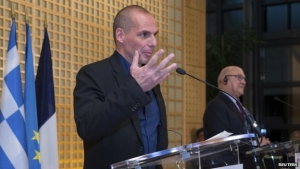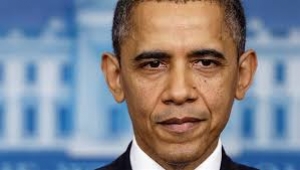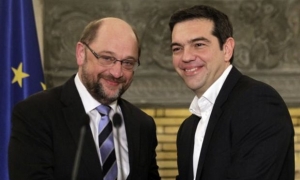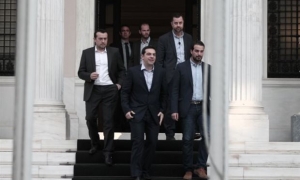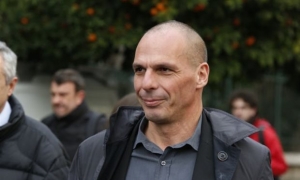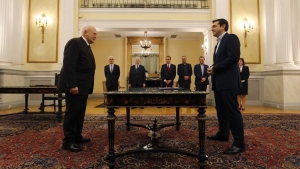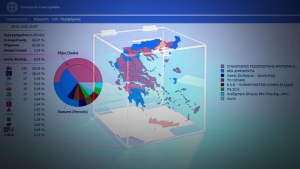As was expected the economist Yanis Varoufakis was given the key position of Finance Minister. Another influential economist, Nikos Dragasakis was appointed Deputy Prime Minister while Giorgos Stathakis will head the ‘super ministry’ of Economy, Shipping and Tourism. Theodoros Dritsas will be a deputy minister in the same ministry.
Alexis Tsipras has reorganized the government, merging several ministries and creating new bodies, such as the Anti Corruption office to be led by Panos Nikoloudis.
The full cabinet:
Prime Minister - Alexis Tsipras
Deputy Prime Minister – Nikos Dragasakis
Minister of State: Nikos Pappas
Deputy Minister of State: Terence Quick
Parliamentary Speaker: Zoe Konstantopoulou
Minister of State to Coordinate Government Operations: Alekos Flambouris
Minister of State to Combat Corruption: Panagiotis Nikoloudis
Government Spokesperson: Gavril Sakellaridis
Ministry of Interior and Administrative Restructuring
Minister: Nikos Voutsis
Deputy Ministers:
- Giorgos Katrougalos (Administrative Restructuring)
- Yiannis Panousis (Protection of Citizens)
- Maria Kollia Tsaroucha (Macedonia / Thrace)
- Tasia Christodoulopoulou (Immigration Policy)
Ministry of Economy, Infrastructure, Shipping and Tourism
Minister: Giorgos Stathakis
Deputy Ministers:
- Theodoris Dritsas (Shipping)
- Elena Kountoura (Tourism)
- Christos Spirtzis (Infrastructure, transport and networks)
Ministry of Productive Reconstruction of the Environment and Energy
Minister: Panagiotis Lafazanis
Deputy Ministers:
Ministry of Finance
Minister: Yanis Varoufakis
Deputy Ministers:
- Nadia Valavani
- Kostas Mardas
Ministry of Health and Social Security
Minister: Panagiotis Kouroublis
Deputy Ministers:
- Andreas Xanthos (Health)
- Dimitris Stratoulis (Social Security)
Ministry of Labour and Social Solidarity
Minister: Panos Scourletis
Deputy Ministers:
- Rania Antonopoulou (Unemployment)
- Theano Fotiou
To read more, please visit thetoc.gr/eng
By Pavlos Zafiropoulos


